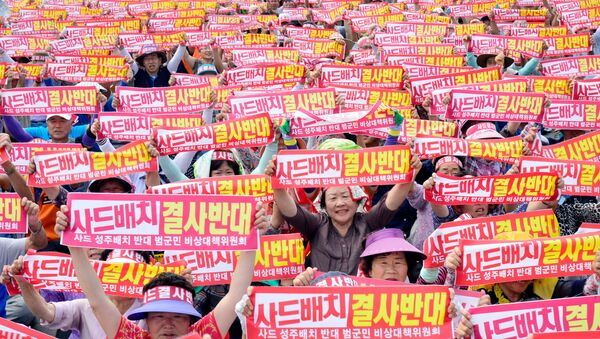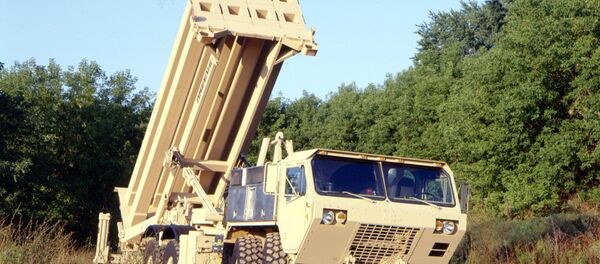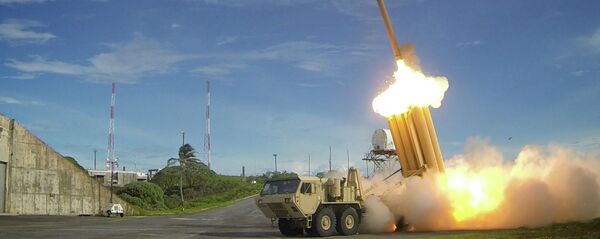Earlier this month, South Korea and the United States announced that they'd agreed to deploy the THAAD system with the US military stationed in South Korea to counter North Korea's alleged missile threat. The system is expected to be online in late 2017.
In the interview, Noh said that residents of Seongju are actually in the dark about who will pay for the maintenance of the THAAD system and its characteristics in terms of security.
"Statements about the harmful impact of electronic waves from THAAD radars may be an exaggeration, but the yes-everything-will-be-fine-trust-us mantra is nothing but enforcement. People should receive security from the state and the government, not seek confirmation of security," he said.
He added that "if the government cannot provide simple and clear scientific evidence [of the THAAD system's safety], it is necessary to immediately suspend its deployment."
Noh was echoed by a young man from Seongju, who, speaking to Sputnik on condition of anonymity, lashed out at the South Korean Prime Minister and other officials over their allegations about coming to Seongju and persuading residents to agree to THAAD's deployment.
"Convincing comes during a negotiation process when the final decision is still pending. As for us, we had just been informed," he said.
In a recent interview with the newspaper Kyunghyang Shinmun, chairman of Seongju County Kim Hangon said that a decision to deploy the THAAD system has never been coordinated with local authorities. He said that no one elaborated on the possible harmful effects of electromagnetic radiation due to the THAAD system, and that he learned about the deployment from the media.
"This is why it is small surprise that Seongju residents are highly concerned about the deployment," he said.
Meanwhile, Oh Mi Chong, general secretary of the Organization of Solidarity for Peace and Reunification of Korea, warned that the decision to deploy the US missile defense system on the Korean Peninsula was putting the lives of millions of South Koreans at risk.
Russia and China also believe that the move will destabilize the situation in the region.




